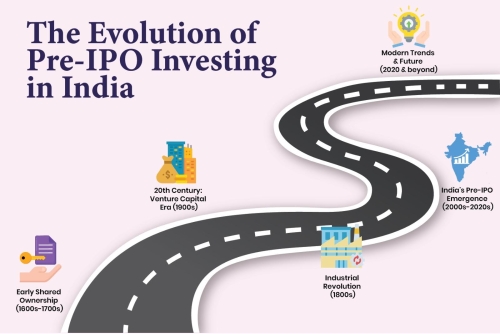First, it is important to have complete information about the exam. Understand the syllabus coming in the exam. Gather strategy and study material. Study with concentration. Along with studies, writing is also important. Give mock tests again and again Newspapers and magazines published daily
THIS Article INCLUDES:
9 Question paper in main exam Eligibility for UPSC Stages of UPSC UPSC prelims exam pattern General studies ii (csat) UPSC mains exam pattern Post in UPSC? IAS preparation without coaching How to prepare for IAS at home? How to prepare for IAS after 10th? How to prepare for IAS after 12th Books for IAS preparation Online IAS coaching platform9 question paper in main exam
question paper
total marks
Question Paper 1: Essay
250
Question Paper 2 : English English Paper
250
Question Paper 3: Indian language
250
Question Paper 4 : General Studies GS Paper 1
250
Question Paper 5: General Studies GS Paper 2
250
Question Paper 6 : General Studies GS Paper 3
250
Question Paper 7 : General Studies GS Paper 4
250
Question Paper 8 : Optional Paper 1
250
Question Paper 9 : Optional Paper 2
250
Eligibility for UPSC
The age limit for the UP SC exam is 21 years to 32 years for candidates. The age limit of OBC candidates is from 21 years to 35 years. UPSC conducts the exam once in a year.
Stages of UPSC
Prelims main exam interview (interview) Prelims – This exam is a preliminary exam.It consists of 2 papers.
Paper 1 and Paper 2, all questions are of multiple-choice type
Paper 1 consists of questions like Political Science, General Science Economics and General Studies (Historical, Geography) as well as Current Affairs.
Quantitative Aptitude Questions are asked in Paper 2 based on Quantitative Aptitude. To pass in the paper, it is necessary to have at least (33) 33% percentage marks, it is of qualifying type in nature. Only after passing this exam, we can take part in the main exam.
Main Examination – This examination is the main examination. After clearing the preliminary exam, you can appear in the main exam. There are four GS papers inside it – one paper is optional, two papers inside it and the other paper is of such type. The third paper consists of English (English) and regional language paper. Like the traditional exam, Main Paper B is a qualifying paper. Only after passing this exam, the candidate can get a chance to appear in the interview. Each paper is of district type carrying 250 250 marks. Interview (Interview) – The merit list is prepared by combining both the marks of 7 papers of main examination and interview. The interview carries 275 (275) marks. Overall, there is a paper of 2025 (2025) marks.Knowledge of current affairs and general awareness is very important for UP SC exam. 30 to 40 questions come in at least one paper of Current Affairs and General Knowledge. For the preparation of these questions, it is necessary for us to read news and magazines daily.
UPSC Prelims Exam Pattern
General Studies I
No. of questions
100
Total Marks
200
Time
2 Hrs
Negative marks
Yes (One Third)
Paper Type
Objective Type
General Studies II (CSAT)
No. of questions
80
Total Marks
200
Time
2 Hrs.
Negative marks
Yes (One Third)
Paper Type
Objective Type
UPSC Mains Exam Pattern
Subject
total marks
Paper A: Compulsory Indian Language
300
Paper B: English
300
Paper I: Essay
250
Paper II: General Studies I.
250
Paper III: General Studies II
250
Paper IV: General Studies III
250
Paper V: General Studies IV
250
Paper VI: Optional I
250
Paper VII: Optional II
250
Post in UPSC?
Jobs are available in 24 services in UPSC Civil Services
1. Indian Administrative Service (IAS)
2. Indian Police Service (IPS)
3. Indian Forest Service (IFoS)
4. Indian Foreign Service (IFS)
5. Indian Information Service (IIS)
6. Indian Postal Service (IPoS)
7. Indian Revenue Service (IRS)
8. Indian Trade Service (ITS)
9. Railway Protection Force (RPF)
10. Pondicherry Civil Service (PCS)
11. Pondicherry Police Service (PPS)
12. Delhi, Andaman and Nicobar Islands Civil Service (DANICS)
13. Delhi, Andaman and Nicobar Islands, Lakshadweep, Daman Diu, Dadra Nagar
Haveli Police Service (DANIPS)
14. Indian Audit and Accounts Service (IAAS)
15. Indian Civil Accounts Service (ICAS)
16. Indian Corporate Law Service (ICLS)
17 Indian Defense Estate Service (IDES)
18. Indian Defense Accounts Service (IDAS)
19. Indian Ordnance Factories Service (IOFS)
20. Indian Communication Finance Service (ICFS)
21. Indian Railway Accounts Service (IRAS)
22. Indian Railway Personnel Service (IRPS)
23. Indian Railway Traffic Service (IRTS)
24. Armed Forces Headquarters Civil Service (AFHCS)
IAS preparation without coaching
IAS exam is a very important exam in our country, for which students often prefer UPSC coaching. By taking coaching, they feel that they will easily clear this exam. But to pass this exam in true sense, not coaching but a goal setting with time limit and hard work including patience and perseverance, etc. is needed only after which this exam can be passed. At the same time, for the preparation of IAS exam, the student has more faith in UPSC coaching in indore, so he considers joining the most expensive IAS coachingh of the city as the first thing to be successful. Whereas this should not be the first plan of an aspirant starting IAS preparation. IAS preparation can make you successful even by staying at home.
How to prepare for IAS at home?
Although one cannot fix the time limit for any exam, but students can reach that deadline with 18 months of tireless work. Along with this, the candidate will have to keep a good eye on current affairs and other current events. Because the goal of IAS exam can be achieved only by passing three attempts, in which the first attempt, which is called pre exam, consists of questions related to current affairs and subject. Even if the student has 60 days left, it is not impossible to hit the target with the right strategy and hard work.
How to prepare for IAS after 10th?
Although IPS exam cannot be given after 10th, but you can start preparing to become IAS from 10th itself by following the tips given below.
First of all, it is important to have complete information about the exam. Understand the syllabus coming in the exam. Gather strategy and study material. Study with concentration. Along with studies, writing is also important. Give mock tests again and again Read newspapers and magazines daily.How to prepare for IAS after 12th
If you want to apply for civil service exam then you must have at least a bachelor's degree. There is no minimum percentage requirement for this exam. That is, if you have done graduation then you can sit in the exam. By the way, you can apply for this even at the time when you are in the final year.
Books for IAS preparation
M. Laxmikant (Politics) Indian Art and Culture by Nitin Singhania (Culture) Certificate Physical and Human Geography by Goh Cheng Leong (Geography) Oxford School Atlas (Geography) by Oxford Publishers Indian Economy written by Ramesh Singh (Economy) Brief History of Modern India by Rajiv Ahir (Modern India)online IAS coaching platform
By the way, there is a lot of online and offline coaching for IAS, due to which many students who have studied have passed this exam. But due to the Corona epidemic, the entire country is currently undergoing a lockdown period. In such a situation, we are going to tell you about some of the best apps through which you can easily do online IAS coaching in Hindi medium sitting at home. Here are the best UPSC online coaching apps.
1. SharmaAcademy App
Sharma Academy App is leading civil services exam learning platform for IAS, UPSC and MPPSC exam. It has exam wise sections for students. The notes for mains and pre exams are uploaded in app in PDF format. Chapter wise notes are available to learn you practice answer writing also by this app. Current affairs notes is also good in this.
2. Civilsdaily
CivilsDaily Mobile App is leading the way for UPSC IAS aspirants to provide the necessary study material to crack the UPSC IAS Exam. CivilsDaily Mobile App is known for current affairs and top news updates. Apart from this, CivilsDaily mobile app publishes newscards daily and special attention is given to those points in the newscard which are very important from the point of view of IAS exam. Dainik News Card is a new initiative to provide daily current affairs topics to IAS aspirants.
3. IASbaba
The vision of IASbaba is - "To provide opportunities for IAS aspirants residing in remote places to get Rank 1 in UPSC IAS". IASbaba is an initiative in the field of education by alumni of reputed Indian educational institutions like IITs/IIMs to motivate and help to conduct qualitative and smart studies for aspirants who aspire for prestigious services like IAS/IPS. IASbaba provides All India Rank in the mock test presented by them which is an important part of IAS preparation. All India Rank infuses new energy in the IAS aspirants and provides the right direction to the preparation.
4. The Hindu
The Hindu is one of the leading newspaper of India which is considered special for the preparation of current affairs from the point of view of IAS exam. Often, IAS aspirants are advised to read The Hindu newspaper daily. Mobile App of The Hindu is also available which an IAS aspirant can easily use while preparing for the IAS Exam. The credibility of the news and information given in The Hindu is much higher than any other daily newspaper in the country for IAS preparation. IAS aspirants must read editorials from The Hindu newspaper on other important areas like Science, Technology, Environment and Health on daily basis.
This article teaches you how to prepare for UPSC. Study hard and diligently to prepare. Studying is a very important part of life. It is a weapon to change the world. Our experts at Sharma Academy thus guide you on the right direction, process, and preparation for UPSC, and prepare you for a wonderful career.





 How to prepare for UPSC Exam 2022
How to prepare for UPSC Exam 2022






